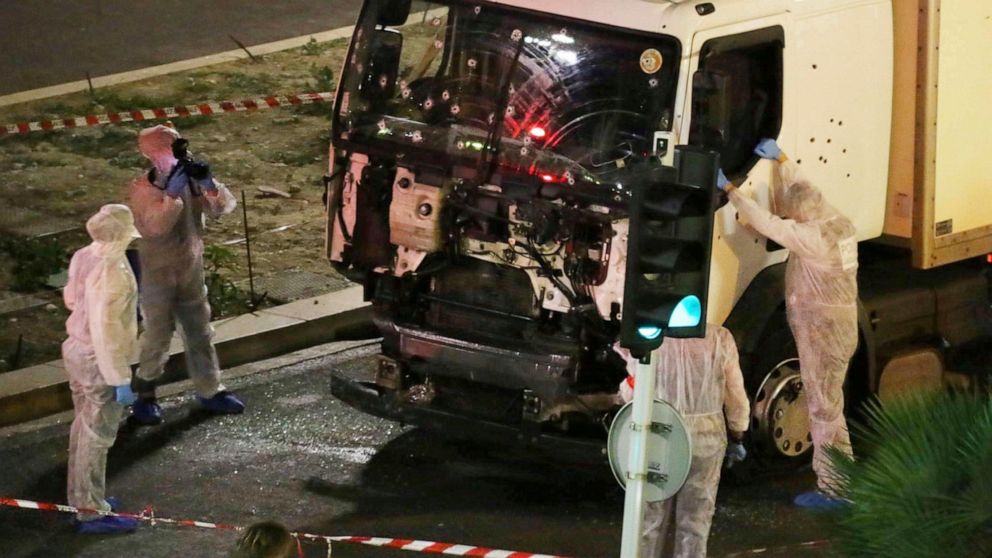Recently a handful of incidents have indicated the insecure nature of the world and the reaction of the world has been to respond with an ideology of rushed nationalism.
In February 2017 a suicide bomber created havoc in Pakistan when he detonated himself in an open space at a religious shrine in Sindh causing 80 fatalities. The rest of the world hasn’t fared any better, from shootings in Nuremberg and Munich to a truck driver ploughing into the crowd celebrating Bastille Day in Nice to killings at European airports with 36 dead in Turkey and 32 in Belgium. The Middle East has been in the grip of continual terrorist activity since the first Gulf War. The US has seen killings in Orlando where a nightclub was attacked and shootings in Fort Lauderdale, only two examples out of many. It is true that Pakistan has been at the receiving end of extremist reaction because it acts as the front line in the war against terror. But not surprisingly this insecurity has now spread to the rest of the world as well and the truly unfortunate thing is that incidents such as these are only increasing further.
Thus, rushed nationalism has been thought of as a proportional response to this growing threat of terrorism. What is rushed nationalism? It is the abrupt shift to the right within the political environment of a country and especially in response to terrorism activities and related insecurities across the world. Like the age old wisdom of cause and effect, this rushed nationalism comes with some baggage and even more consequences, which the article will tackle later. But first, what has further facilitated this shift to the right and leads various countries into the arms of rushed nationalism? Consider the following two narratives.
Firstly, and as the English adage goes, it is the economy stupid! And on that front, the global performance has been very poor. This has resulted in squeezed standards of living for everyone and especially for the middle classes. This phenomenon, coupled with the unfortunate refugee crisis emanating from the Middle East in general and Syria in particular, has meant that anti-immigration sentiment is high. Rightist parties have taken advantage of this situation to the hilt and have also preyed on this nationalist discourse in the mainstream media to gain further ascendency. This was reflected in the shock BREXIT vote in the UK to leave the EU.
Secondly, in the political environment there are two major events that signify the rise of the right albeit underpinned by a sense of rushed nationalism. Though, there are many other examples that can also be listed. The first event is yet to happen but is becoming more probable every day; Marine Le Pen winning the French presidential election. Her father, Jean-Marie Le Pen, could not achieve this feat because of the liberal population who had galvanized around the secularist candidates of the time. France is not expected to be that lucky in 2017. Marine Le Pen – as her father – is a protectionist, a nationalistic and an isolationist. She shares this with the person that is the central figure of the second event, Donald Trump and the US presidency. He has been elected on a nationalistic agenda. This is reflected in Trump’s campaign promises such as barring Muslims from the US, revoking the Trans-Pacific Partnership (TPP), erecting a wall with Mexico, reducing the role of NATO and opposing trade deals such as North American Free Trade Agreement (NAFTA).
To the naked eye, it may be obvious that rushed nationalism might provide cogent answers to the testing questions of today. But closer scrutiny shows that not to be true. Consider the following arguments.
A misplaced notion of rushed nationalism has been translated into ‘closed borders’ in the Asian subcontinent. That is why the three major players in the region – India, Pakistan, and Afghanistan have been at loggerheads for quite some time. This sows rampant seeds of distrust and animosity. This is also because rushed nationalism is incorrectly thought to be the only way for providing security to citizens. Unfortunately, terrorists will keep on exploiting the divide between nation states unless there is a conscious decision to move towards a global idea of internationalism. The rest of the world is facing the same divisions and seems to be slowly sleep walking into a false sense of security based on a closed and absolute ideal of nationalism.

‘Guarding one’s borders’ is a scenario that is also increasingly seen in Europe. None more so than the decision of the British population to renounce their long standing relationship with the EU and abandon the treaty by triggering Article 50 of the accord. But like all things, this is not without consequences. Since the tumultuous referendum in 2016, the UK government has tried to find strong and sustainable trading partners but without much success. That has in no way been aided by Donald Trump’s isolationist stance and his decision to act as the recluse of the global stage. Will Britain be able to find strategic relationship as it enjoyed as part of the common market in Europe? Only time will tell. But rest assured, there is strong unease in the country and a tacit acknowledgment that most of the population was duped by the campaign which was professing a stronger Britain after BREXIT. In continental Europe, tightening of immigration rules, protecting the local work force, and reducing asylum applications are all measures built in the nationalistic mould. Could they stop the acts of terror and brutality witnessed in 2016? No. Will they do so this year? Probably not. The rise of the right and in some cases the far right, doesn’t predict a rosy 2017 for Europe.
The US is in a bind as well. People might be forgiven in thinking that the daily events erupting from the Trump White House are more in tune with a third world banana republic. But Trump was very shrewd to recognise that the ‘USA first’ slogan can get him the presidency and so it did. But see what has happened afterwards to all his flagship, nationalistic pledges. The Muslim travel ban in the US has seen protests from all social classes. Civil servants, including the acting attorney general, have resigned; some would probably say fired. Judges have halted this presidential order and caused Trump to label U.S. District Judge James Robart, the first one to stop this directive, a ‘so-called judge’. Thus, at every opportunity the executive is clashing with the judiciary. The net result? A polarised society where this out-dated executive order is fuelling hatred and isolation. The anti-trade mood is also being challenged at several fronts including the mainstream media, which Trump calls ‘fake news’, as Forbes has maintained that trade deals such as NAFTA are here to stay and are not the reason that manufacturing in America has been gutted. The ‘wall of Mexico’, the popular name for the fence on the border between US and Mexico has put a massive strain on the collegial relationships between the two countries. Even UK, America’s ‘special ally’, has waded into the debate to exude caution. Like Europe, America’s days ahead are also expected to be full of strife and controversy. And because US is debatably the sole super power, this scenario doesn’t augur well for the rest of the world too.
The pertinent question must be asked, why rushed nationalism? The answer is simple, it is an easier and more straight forward sell than internationalism and because rushed nationalism is based on motivating and galvanizing the electorate out of fear. BREXIT campaigners in the UK and Donald Trump in the US are classic cases in point. Both pledged economic, social, and geographical security but time and events have proven them otherwise. Therefore, the world must wake up to the actual category of failures of heightened nationalism and turn a new leaf and move towards a policy of internationalism. So that borders are not closed while migrants are suffering and dying. So that ordinary citizens are not left in misery while countries protect their own turfs and borders. So that liberalism is not sacrificed at the altar of hatred and disillusionment while promising security where no security exists.
All policies are executed with certain under pinning strategies. Internationalism, as argued in this article, is no different. Consider.
Squeezed standards of living, the most common ailment of the common man, will be alleviated when the economy reinvigorates. How? Price inflation will lessen if low costs and global increase in business and trade is sought. A corollary would be an overall increase in global business activity and thus increased economic security.
If global trade increases so does the necessity of stable political relationships. This will be of paramount importance to manage the interdependencies in the political and economic arena. Thus, global economic interdependence would merit, rather force, nation states to cater for each other and be accommodating towards all citizens. And because the economy and multinational trade routes will not abide by political boundaries, this will lower the probability of conflict by increasing the value of trading over the alternative of war.
It has been said that terrorist activities cannot be stopped on the day but before that day ever comes to pass – via intelligence sharing. During the recent spate of terror attacks in Europe, one political analysis suggested that the nationalistic mindset of the EU governments has only succeeding in stopping the flow of intelligence and nothing else and that was the reason that these disasters could not be mitigated. Therefore, internationalism would help where rushed nationalism has failed, by enabling an environment of trust where the timely sharing of crucial intelligence could thwart the evil designs of terrorists and criminal elements.
Will ‘internationalism’ be easy? No.
Will it be rewarding? Yes.
Why? Because it is based on a motivation that stems out of desire and a ‘win-win’ scenario for all parties which will result in international amity and transform those famous localised ideals of liberty, equality, and fraternity into truly global principles.
Heraclitus, the Greek philosopher, is quoted as saying “change is the only constant in life”. How right he was! The logic of dynamism suggests that course corrections are always needed and no wind blows in favour of a ship that is rudderless or a sea captain who does not change his course in the face of challenging storms. The world is at a crossroad, it must look outward and embark upon the redefined direction of internationalism to successfully navigate the choppy depths ahead.





